Eugenio by Name, Pius by Choice (2)
By the age of eighteen, Eugenio had entered the seminary in Rome to train as a priest. The routines of seminary life were time-honoured and fruitful, involving study, prayer and various kinds of recreation. The manual of the time states the purpose of seminary formation: ‘The student needs to acquire the manners and personal habits becoming of his calling and by his good disposition give hope that he will persevere in his service of the Church.’
Eugenio embraced the life of the seminary fully – perhaps a little too fully, for at the end of his first year of studies his health caused concern. The consequence was that the vicar, Cardinal Caspari, gave him permission to undertake his second year at the Roman College as a day student living with his family. This was unusual, but not unknown, and allowed Eugenio a more flexible routine. He lived in the Pacelli family home until his ordination.
The courses he took at the Pontifical Universities were comprehensive. Philosophy to start with, and then various theological courses, and Canon Law. At the University of Rome he studied Italian languages and literature, history, European culture, moral theology, and he had a particular interest in Gregorian Chant, which he studied closely. He continued his studies of German.
Eugenio enjoyed study and he liked order – loose ends were not part of his life. One of the priests on the seminary staff was his spiritual companion and guide. The rosary and various devotions were part of his routine and on major feast days he would join the other seminarians in celebrations. Exams at the seminary were oral, before a panel of three faculty members. The students were called, given a topic to talk about, and kept talking until the examiner indicated it was time to stop.
In regard to his piety, Eugenio seems to have had great devotion to The Imitation of Christ, which had made an early and deep impression on him. He would have taken to heart the advice to centre his life on God first of all, then seek to help others in the light of God’s love.
Through his own observations and his talks with his father, Eugenio would have been aware of the political situation in Italy at the time and the various competing ideologies, and how the Church fitted into the picture. From his father he would have learned the need for diplomacy, tact and political skills.
He was nobody’s fool, there was a shrewdness developing in him that would stand him in good stead in his later career.
Eugenio’s sister Elizabeth comments that he was not without charm, and had a winning way as his social manner developed; but he could also shut conversations down with a look or a gesture, especially if they were taking a direction in which he did not wish to go.
In her recollections, Mother Pascalina Lehnert, his secretary and housekeeper for many years, commented on his sense of humour. Among other things, fables amused him greatly.
Eugenio was ordained at the age of 23 by Cardinal Caspari, in the church of St Philip Neri. He continued with his doctoral studies in theology and Canon Law at the Gregorian University. He did a little pastoral work in Roman parishes, but he had long been watched as a prospective diplomat and he was invited by Cardinal Caspari to join the Vatican Secretariat of State. There were the customary protests – ‘I’m just a humble priest’ – which were dismissed by Cardinal Caspari with the comment, ‘there are many mansions in the father’s house.’
Becoming papal nuncio to Germany in 1917, Eugenio was on his way. With his capacity for work, his intelligence and deep genuine piety, he was to become the consummate insider, able to work his way through the Vatican byways, a safe pair of hands backed by exactitude in manner and outlook. His influence at this stage, and later, of course, as pope, was to run wide and deep.
References:
The Imitation of Christ,by Thomas à Kempis;
Mother Pascalina Lehnert
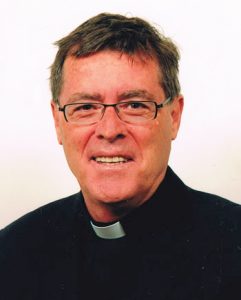
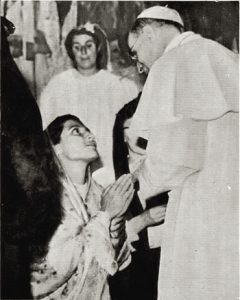
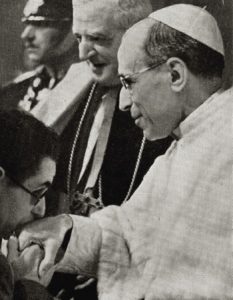
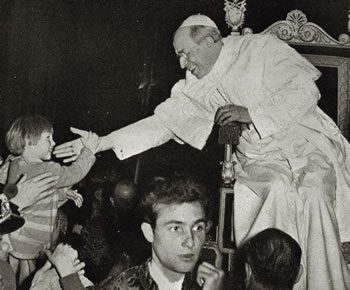
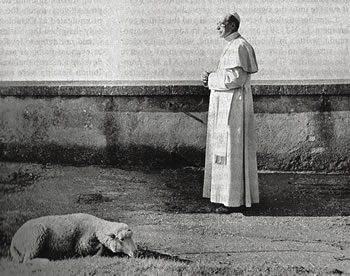
 Entries(RSS)
Entries(RSS)